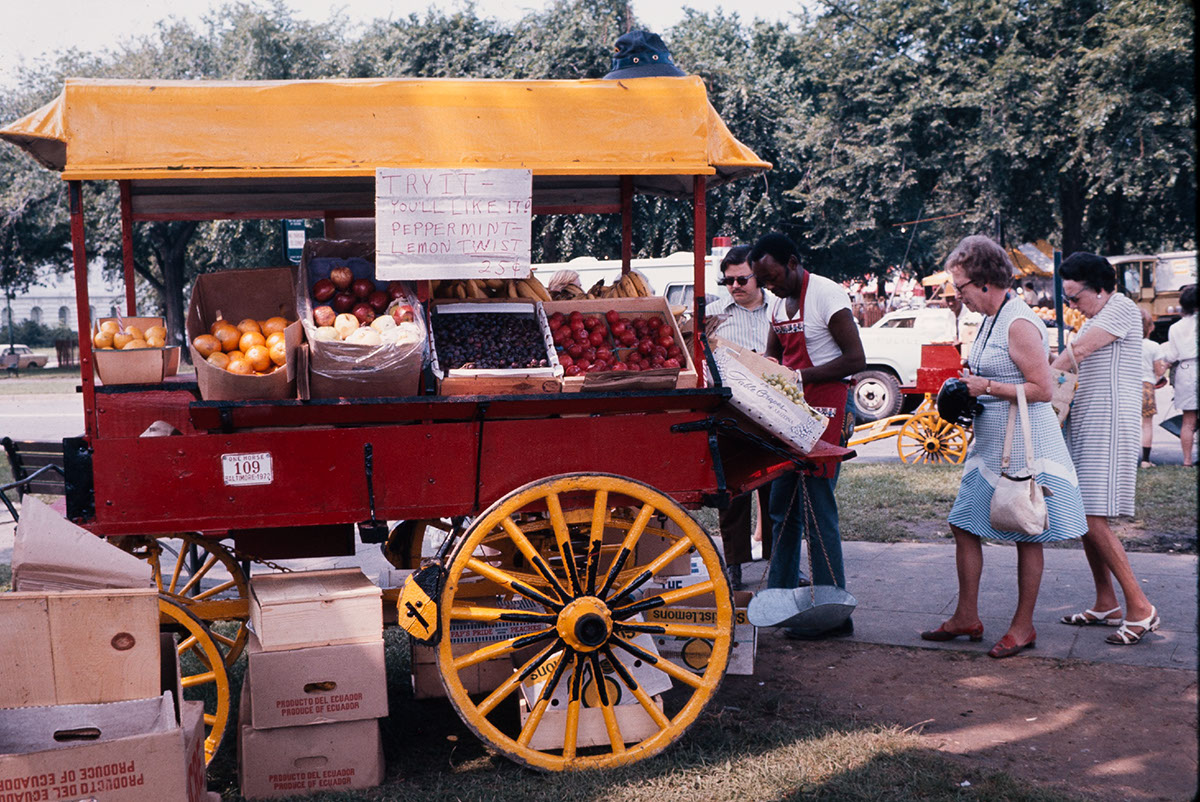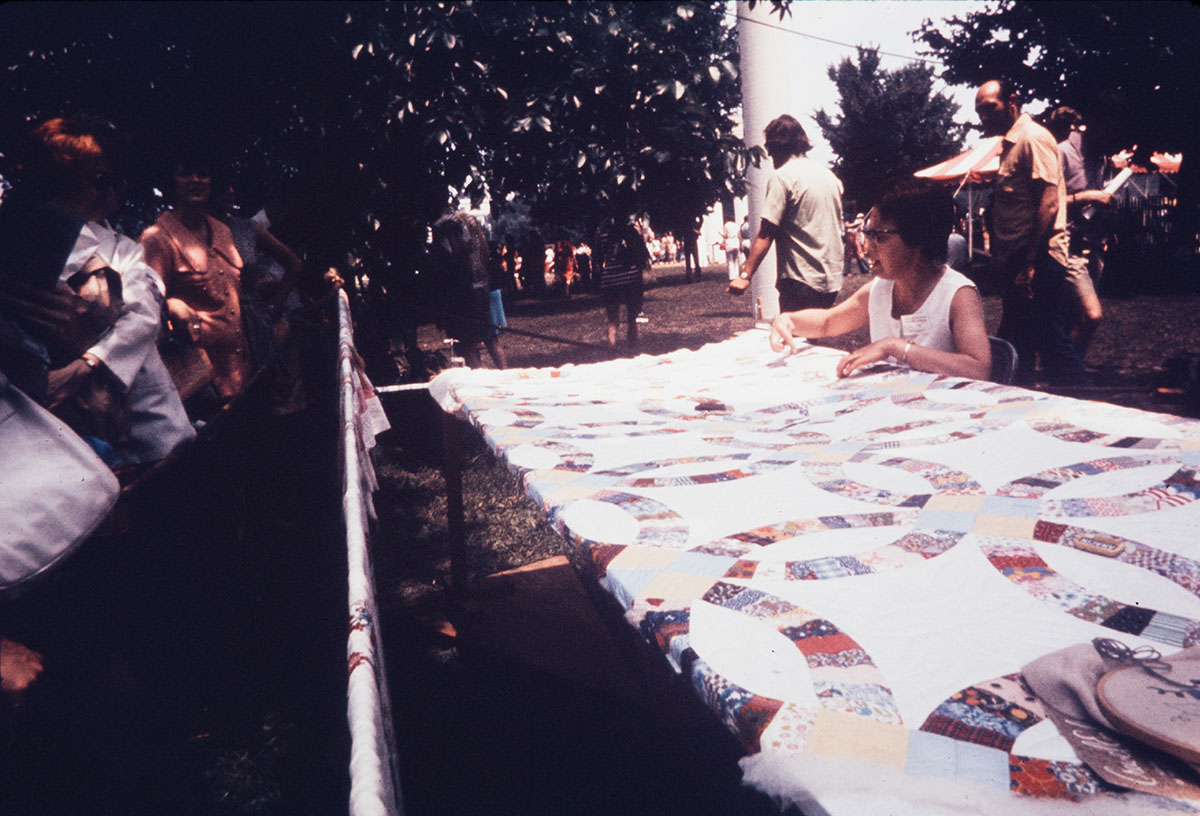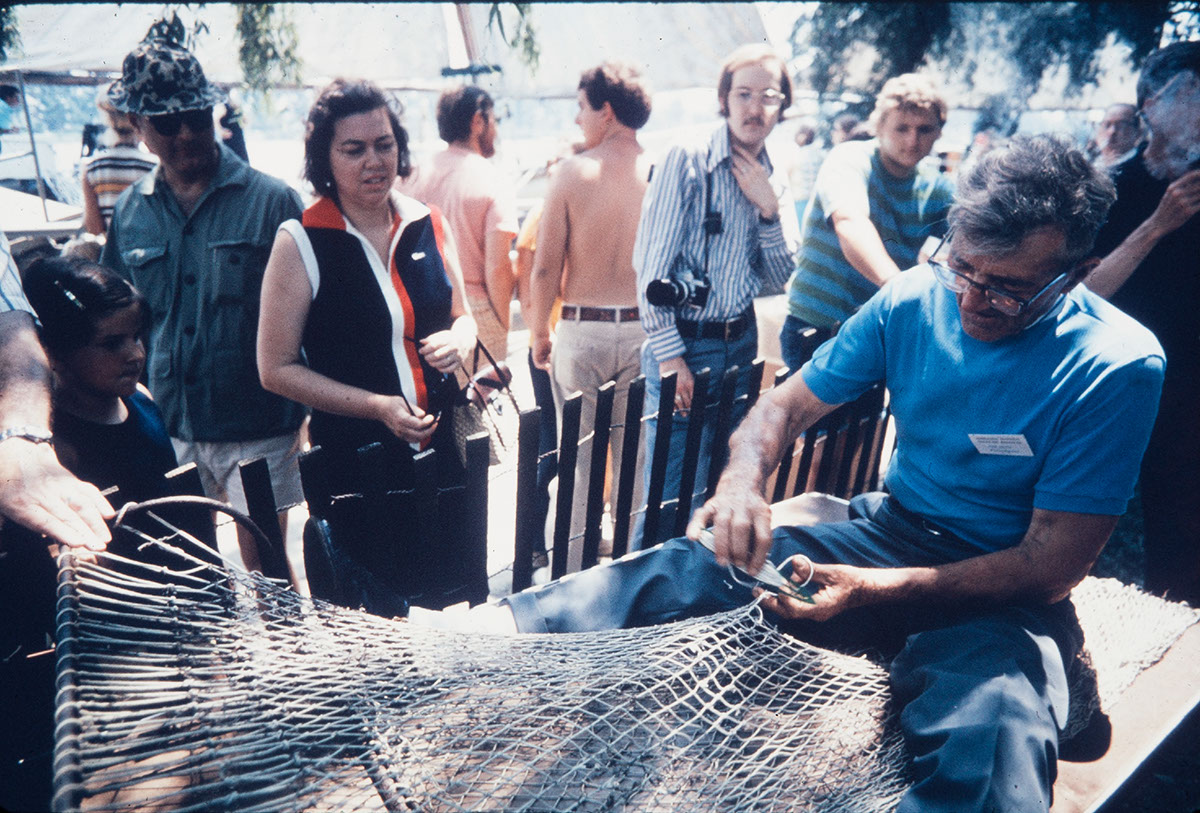Food concession at the 1972 Maryland program. The food was provided by the Olympian Brotherhood of Baltimore, a Greek community-based organization made up of immigrants from the village of Olympos on the island of Karpathos in Greece. Olympian musicians, singers, and dancers also participated as part of the 1972 Maryland (FAF1972_00856).
Courtesy of the Ralph Rinzler Folklife Archives and Collections, Smithsonian Institution.
Baltimore Arabbers selling fresh fruit in a traditional manner at the 1972 Festival of American Folklife, Maryland program (FAF1972_0282).
Courtesy of the Ralph Rinzler Folklife Archives and Collections, Smithsonian Institution.
1972 Festival of American Folklife, Maryland program (FAF1972_0354).
Courtesy of the Ralph Rinzler Folklife Archives and Collections, Smithsonian Institution.
1972 Festival of American Folklife, Maryland program (FAF1972_0834).
Courtesy of the Ralph Rinzler Folklife Archives and Collections, Smithsonian Institution.
1972 Festival of American Folklife, Maryland program (FAF1972_0907).
Courtesy of the Ralph Rinzler Folklife Archives and Collections, Smithsonian Institution.
1972 Festival of American Folklife, Maryland program (FAF1972_0930).
Courtesy of the Ralph Rinzler Folklife Archives and Collections, Smithsonian Institution.
Maryland was this year's featured State, and programming focused in particular on three themes: water,
horse, and metal traditions, selected on the basis of their richness and significance within the State.
As the Nation's leading "fishing hole," the Chesapeake Bay, home of the last remaining commercial sailing
fleet still in operation in the United States, has clusters of skilled craftspeople and fisherfolk whose Iives
are part of the waters and their yield. At Hains Point in West Potomac Park, and thanks to the assistance
and cosponsorship of the National Park Service, the Festival showed ships and crafts related to the
Chesapeake waterways. The history of these and other crafts could be seen in the National Museum of
History and Technology's Hall of Maritime History.








